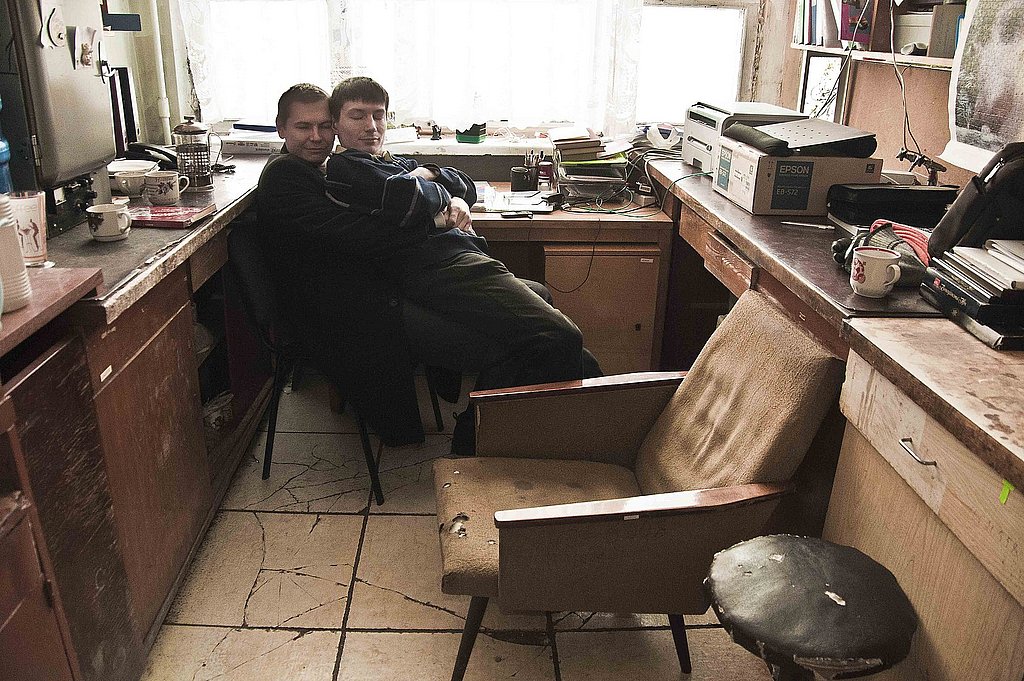On Thursday, June 25, 2025, Yevgenia Belorusets will be awarded the Alice Salomon Poetics Prize. As part of the award ceremony, the university and its guests can look forward to a reading with the Ukrainian artist and then celebrate it at the ASH Berlin summer party. In advance, the clever Ms. Belorusets answered a few questions for us. In the interview, she explains how her stories come into being, dampens expectations of art in war and compares her works with animals in the forest. A conversation that makes you want to enter the cosmos of the internationally acclaimed Ukrainian and spend a special day with her.
Ms Belorusets, your works move between literature, photography and political activism - how would you describe your artistic practice?
YevgeniaBelorusets: My works have tended to get lost between different forms and practices. These days they look at political activism with a certain skepticism. If we imagine the works as animals in cages - or rather: in the forest - we will see how they run away or try to distance themselves from the idea of political activism. Because today it often means a declaration of loyalty rather than the search for new solutions or the protection of human rights.
I would describe my practice as a form of reflection. I want to pause, dwell on a phenomenon and not rush to give an answer as to what it is. Rather, I want to look at it in the first place. The photograph, especially one that doesn't show much, expresses the idea of contemplation. And the text - the idea of pausing.
In your works, you report on everyday life in Ukraine - how does the war change your view of art and language?
The war takes away the power of language and destroys art. That is all it is capable of in these areas. War means the legitimization of destruction and killing - even for a country that defends itself - a legitimization of inhumanity.
The most difficult thing is to continue living during the war and to know that the war will also continue. Everyone is facing this challenge right now.
What can art do?
I wouldn't see art as anything special - nor would I expect anything special from it. Like many other forms of expression, it tells us something about time and space, about experience. A boring answer, perhaps. But I don't expect anything from art - even though I want to serve it with my work.
"Poetry provokes you to go on a journey."
How do your stories come about?
Stories arise from experience, from listening to the voices of others, from observation. They also arise from being amazed at what people do or say, how animals and plants express themselves, or rather what we think about them. The lines of landscapes can also surprise us or tell us something. This creates a kind of unrest in a story, a "line" or an order is interrupted. But how does the idea of an order come about, which in turn is to be interrupted?
What is "poetry" for you?
Poetry is something truly wondrous. I can never understand it and even less decipher it. But when I encounter it - even in lines or small fragments - I have the feeling that the combination of words, their timbre, their composition can create new meanings every time I read them. It also provokes you to go on a journey.
How does storytelling change during war? What responsibility does art bear in times of violence, destruction and disinformation?
Responsibility? Art is invited to take to the barricades as quickly as possible and with a certain grace - and to participate in this destruction in the name of "responsibility", only on the "right" side of the conflict.
Perhaps part of the responsibility is to politely say "no" to this invitation. But maybe I'm wrong. Everyone can decide that for themselves.
What reactions do you and your art receive?
The fact that my work sometimes receives this kind of attention is a gift for me. I could also say that some of my works are quite often in a dialog with the readers, viewers, with the thoughts of others. Very often, most of the time, I talk about Ukraine in my work because it's about the communities and societies that I think I understand best. But I am the last person who can say anything sensible about the differences in reception.
What can visitors to the Poetry Prize ceremony look forward to?
Let's use the event as an opportunity to get together - simply to spend time together and listen to a reading, as well as the music of a major Ukrainian visual artist, the singer and musician Anatoly Belov, who will be DJing for us.
As I recall, the award ceremony coincides with a festival. We can take advantage of all this to enjoy a summer evening to the full.
The questions were asked by Denis Demmerle.
Read more...
More about Yevgenia Belorusets and her work can be found on her homepage www.belorusets.com!
Yevgenia Belorusets photo series "A Room of my own" are on display until January 26, 2026 as part of the exhibition "A Heart That Beats - Queer Ukrainian Art in Focus" at the Schwulem Museum Berlin.



